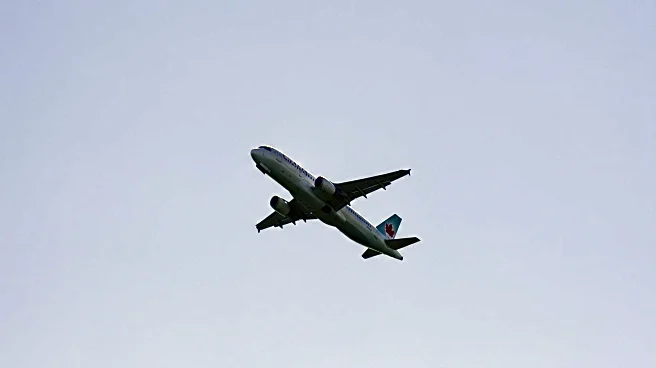What's Happening?
Air Canada has reached a tentative agreement with its flight attendants' union, ending a strike that began on Saturday and led to thousands of flight cancellations. The Canadian Union of Public Employees (CUPE), representing over 10,000 flight attendants, announced the agreement early Tuesday. The strike had caused significant disruptions, with more than 500,000 passengers affected. The union was seeking better pay and compensation for ground duties, which are not currently compensated by Air Canada. The airline plans to gradually resume operations, with full restoration expected to take several days.
Why It's Important?
The resolution of the strike is crucial for Air Canada, as it aims to restore its operations and customer trust. The disruptions have had a significant impact on the airline's financial performance, with potential losses estimated in the hundreds of millions. The agreement may influence future labor negotiations in the airline industry, particularly regarding compensation for ground duties. The strike highlighted the need for airlines to address employee concerns while maintaining operational efficiency. The resolution is expected to stabilize Air Canada's operations and improve its relationship with employees, although the long-term effects on labor relations remain uncertain.
What's Next?
Air Canada will focus on resuming its operations and minimizing further disruptions. The tentative agreement will be presented to union members for ratification, which could impact future labor negotiations. The airline will need to address logistical challenges, such as repositioning crew and aircraft, to resume full service. The Canadian government may investigate the allegations of unpaid work in the airline sector, potentially leading to regulatory changes. Stakeholders will be closely monitoring Air Canada's recovery efforts and its ability to maintain its market position.









